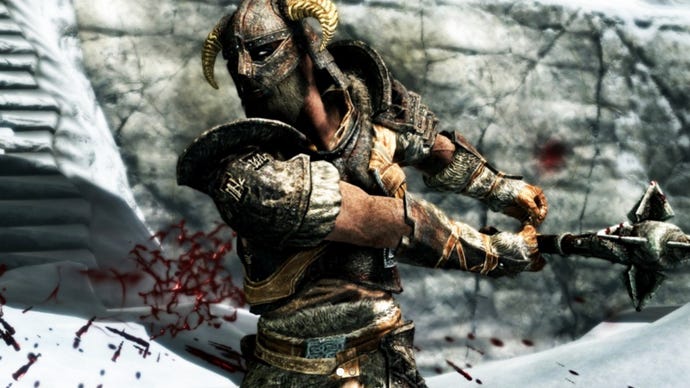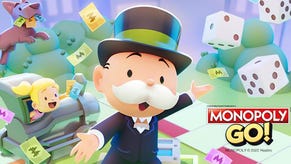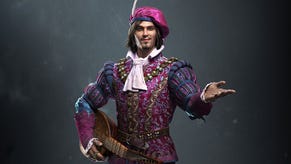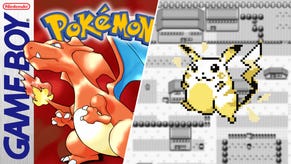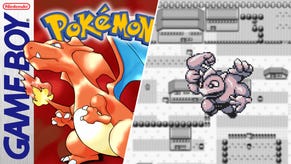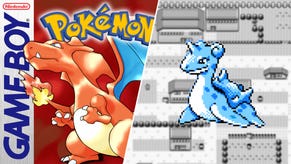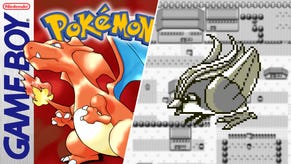The 50 best RPGs ever
Pick your character class, choose your weapons and recruit your comrades. We count down the 50 best role-playing games ever made. There are a few new entries since we last went through, even some from this year.
Nobody is allowed to argue with our list of the 50 best RPGs of all time. We had enough squabbling in the staff meeting, and as for the secret edit wars... Half of us are still not speaking to the other.
When the dust settled, the blood had been mopped, and everyone had apologised to their fellows, we shook hands and agreed that we'd mined a deep vein of precious truth, the ore that powers our rampaging video game justice machine. We had discovered the 50 best RPGs ever.
50. Secret of Mana
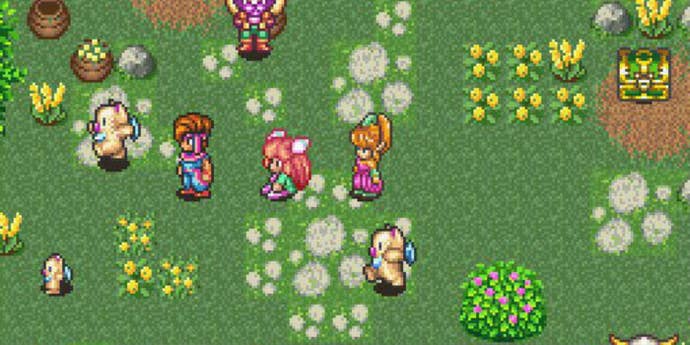
Oh, Secret of Mana: how we love thee. Never had we blown so hard on a worn out SNES cartridge, just to get you working again. With a banner real-time battle system, jaw dropping graphics, and a stellar soundtrack, for some of us, it is one of the greatest games ever.
Even though the menu system was overly frustrating at first, and the story was very Japanese for some, it was unique with fun co-op and super smart AI for its time. And finally being granted access to Flammie the dragon? Seeing him fly above a ground rendered in 3D? Being able to ride him? Forget about it. The game was released 20 years ago, and yet it still manages to make us feel all warm and fuzzy inside.
49. Kingdom Come Deliverance
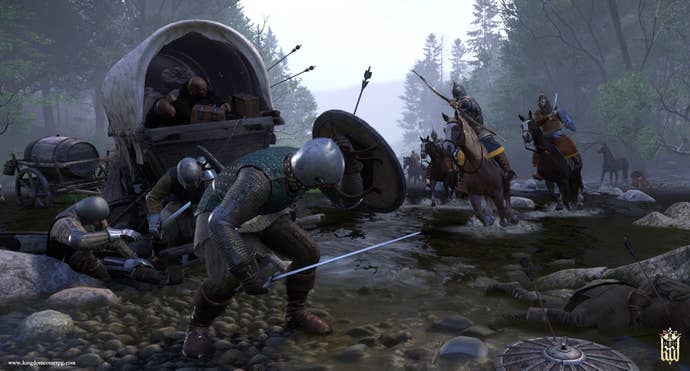
Kingdom Come: Deliverance has a great premise: a “dungeons without dragons” historical representation of 15th century Bohemia built in the beautiful CryEngine and packed with deep RPG systems. In practice though, it starts to creak under the weight of its own ambition.
The first-person physics-based combat is exciting, innovative, and maddening in equal measure; a theme that permeates almost every part of Kingdom Come. There are so many good ideas here, and although the AI and environments can be janky in the extreme - probably owing to the fact that CryEngine was built for FPS games - it presents a potential for medieval roleplay that’s second-to-none.
If you're into real ale, Kingdom Come: Deliverance will totally be your jam.
48. Pillars of Eternity
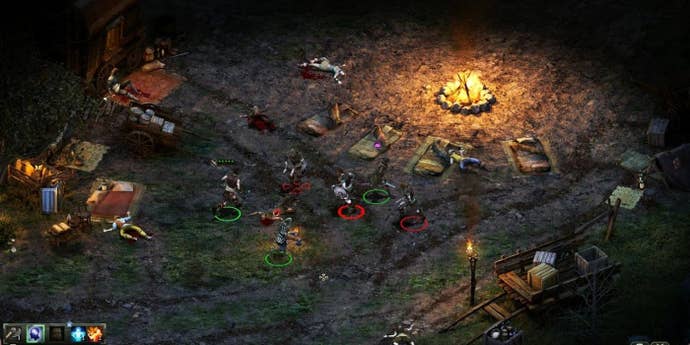
If you’re just gagging for an unapologetically old school CRPG, but running at a resolution that doesn’t make your modern monitor produce small sounds of disgust and distress, Pillars of Eternity is for you.
Obsidian asked the Internet: would you like it if we ignored all that 3D action nonsense and just used a modern engine to make a retro-style RPG in the style of Icewind Dale and Baldur’s Gate? The Internet said, yes please and here is a (then record-breaking) $4 million to do it with. The result is exactly what you’d expect, and probably delight in. Although Obsidian didn’t have a Dungeons & Dragons license, this freed it up to create its own rules, races, perks and feats, plus a unique re-interpretation of fantasy setting tropes.
47. The Legend of Dragoon
Sure the battles could be a bit repetitive and the combo system was unforgiving at times, but despite all this, The Legend of Dragoon was damn good game. Why else have there been numerous requests from fans for Sony to release another entry? It was beautiful, the storyline was tight, you could transform into a more powerful form in battle, and multiple use items were peppered across the game for the player to find in order to increase stats. And how many of you actually collected all the stardust, thus acquiring the Vanishing Stone so you could face superboss Magician Faust? Champions, each and every one.
46. Ultima (series)
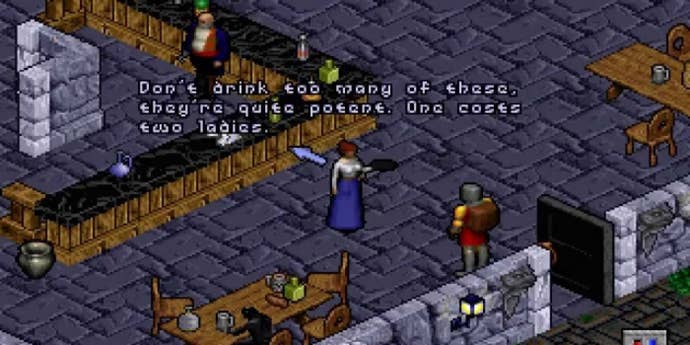
Where do you even start? With Ultima Online, the first really successful graphical MMORPG? With nine core games and a dozen spin-offs? With the huge breadth of talent at the late Origin Systems? Or maybe with the suspected madness of Richard “Lord British” Garriott, who loved the worlds he helped create so much he can’t stop doing author-inserts and appears as a major, recurring NPC? Ultima is pure western fantasy, if not at its finest then certainly at some of its peaks.
45. Fable
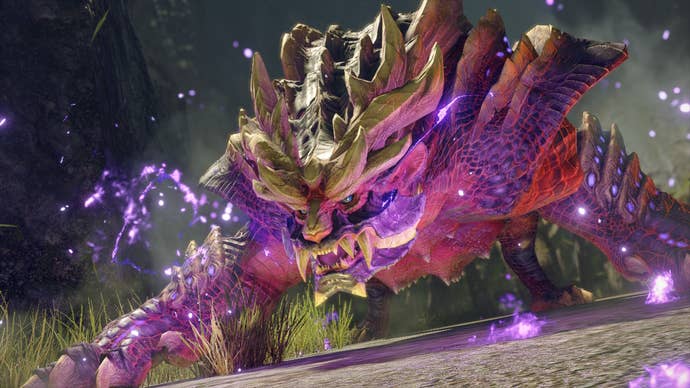
In more innocent times Fable felt fresh and funny. An RPG set within a crooked take on the eccentric British, Peter Molyneux’s first attempt at Fable came without all the pretentious bullshit. The difficult choices were always binary so you only ever turn out purely evil or saintly good, but on the way you get to marry, drink and fart like a trooper. If nothing else it’s just bloody good fun. The original Fable is probably the best one on balance, since the third is stuffed with a few poor ideas that likely made it through Microsoft’s filters thanks to Molyneux’s climb up the executive ranks - but that does make it the most textured and interesting.
44. The Bard's Tale
Not to be confused with the 2004 parody action-adventure title, the 1985 version of The Bards Tale (included with purchases of the newer game) is still discussed in reverent and hushed tones in dark corners of internet saloons. For its time, it was a more than capable competitor to the Ultima juggernaut gracing the majority of desktops. The dungeon crawler had some of the hardest enemies for its time, was vast in scope, and was graphically stunning for the Commodore crowd. A best of RPGs list wouldn't be complete without it. Two sequels followed, and a fourth series entry is expected thanks to InXile's ongoing attempts to single-handedly resurrect classic role playing.
43. System Shock 2
Ken Levine may have perfected his gameplay mechanics years after its release, but this survival horror, cyberpunk RPG laid the groundwork for all BioShock games to come.
System Shock 2 thrust players into a starship to stop a genetic outbreak. Like its predecessor, it mixed FPS elements with the ability to build up your skills and traits in a formula we came to know as the immersive sim. While it wasn’t deemed a commercial success, it has been credited as the inspiration behind several shooters and other genres with its innovative progression system. Add in the fact this was NOT a game you wanted to play on your own in the dark, it deserves to be on any “best of” list.
42. Ni No Kuni: Wrath of the White Witch
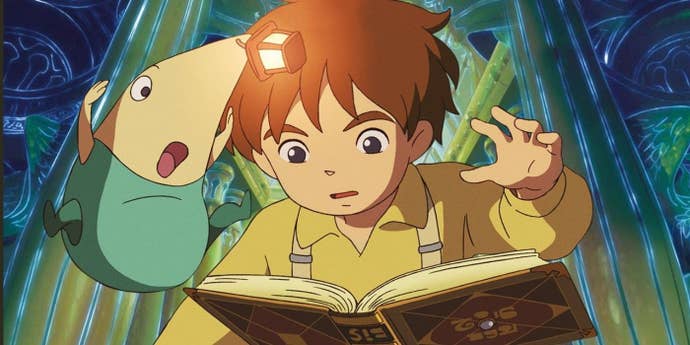
For some of us Level-5 can do no wrong, and Ni No Kuni: Wrath of the White Witch proved our opinion of the developer was valid with this breathtakingly lovely DS and PS3 release. Combined with Studio Ghibli’s traditional animation style and cutscenes, the player cannot help but be drawn into Oliver’s world as he and the fairy Drippy try to thwart the evil wizard Shadar. It’s a touching story, as Oliver is convinced he can bring his mother Allie back to life and help broken-hearted people affected by Shadar along the way. When he finally confronts the White Witch, we are met with a touchingly bittersweet ending to a fabulous effort by the developers. We expect to add the upcoming sequel to this entry, to be honest.
41. Anachronox
Ion Storm’s forgotten game, Anachronox is the neglected middle child to bratty Daikatana and smug Deus Ex. Tom Hall’s name is still spoken of in reverent tones whenever fans of this beautiful project gather, and with good reason: Anachronox fronts a beautiful world, a gently good-humoured tone and bitingly good writing. Consigned to cult classic status, it deserved so much more.
40. The Legend of Heroes: Trails of Cold Steel 2
If the Ys titles aren’t enough for you to appreciate Nihon Falcom, then you need to get your hands on one of the myriad of The Legend of Heroes titles. Starting life as an action series called Dragon Slayer, after the second entry, Falcom dropped the Dragon Slayer bits altogether to focus on turn-based RPG combat (the main series lived on in other Legends titles).
Most people familiar with the series had to import the titles, but thankfully, Falcom, NIS America and XSEED between them have managed to bring a few over in recent years – The Legend of Heroes: Trails of Cold Steel 2 is the latest and easiest to find in the west. What do you still have a Vita for if not to play JRPGS, anyway?
39. Bastion
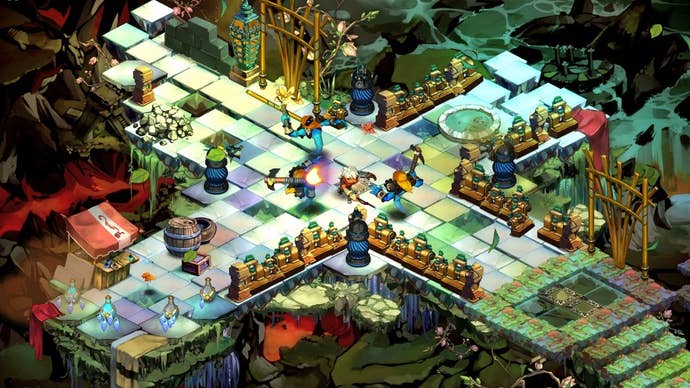
Supergiant Games' Bastion is a hand-painted masterpiece that combines varied action-RPG gameplay with an enigmatically affecting story. It's one of the best games to come out of the late '00s, early '10s indie explosion and can often be found for a song during sales.
Bastion is also much shorter than a lot of the other entries on this list, clocking in at around 6-8 hours for a rush job , but more than double that if you're going for a deep dive. That means that even the most time-poor among us have a chance at actually finishing a great game for once, rather than burning out and forgetting where you are 70 hours in for the millionth time.
38. Lord of the Rings Online
There are numerous games based on or taking place within JRR Tolkien’s Middle-earth, but thanks to Peter Jackson’s films bringing the lore mainstream, several recent efforts have been worthy to carry the Lord of the Rings name. One of these is the now independent MMORPG Lord of the Rings Online, which still deserves its place on this list despite numerous changes and content droughts over the years. No other game gives you the opportunity to immerse yourself in the lore and lay of the land dreamed up by Tolkien himself. There is nothing more goosebump-inducing than the first time you encounter a ringwraith or gaze upon The Gates of Argonath. LotRO is riddled with enough scenes, landscapes, and storylines from the books to make any Tolkien fan happy, even if just for the virtual tour.
37. Undertale
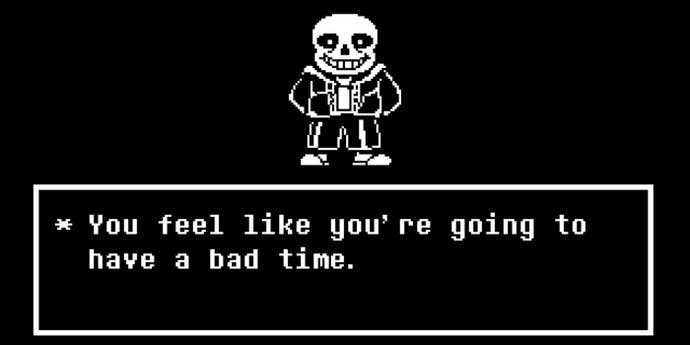
Undertale creator Toby Fox proved that you don't need to have a big team and Square Enix-sized budget to make a great RPG. Largely developed by Fox himself, Undertale captured hearts with its quirky characters and clever approach to quest, story and puzzle design.
Another indie darling that made it big, Undertale absolutely nails all of the key components that made people fall for classic games: a killer soundtrack, lovable characters, and more charm than Sean Connery's raised eyebrow.
36. The Last Story
Mistwalker outdid itself with this Wii exclusive from the team that brought us Blue Dragon and Lost Odyssey just as a warm up. The Last Story had everything you could want in an RPG: mercenaries, a great story, a simple but unique combat system, and a fantastic soundtrack. It was truly one of the best games ever released for Wii, which makes it hugely frustrating that Nintendo didn’t bother to get it into western hands before the console’s heyday was well and truly over. Mistwalker has been focused on mobile since The Last Story’s release, but has a new console game in the works. Hopefully, Hironobu “Father of Final Fantasy” Sakaguchi has something special up his sleeve and won’t keep fans waiting much longer.
35. Breath of Fire (series)
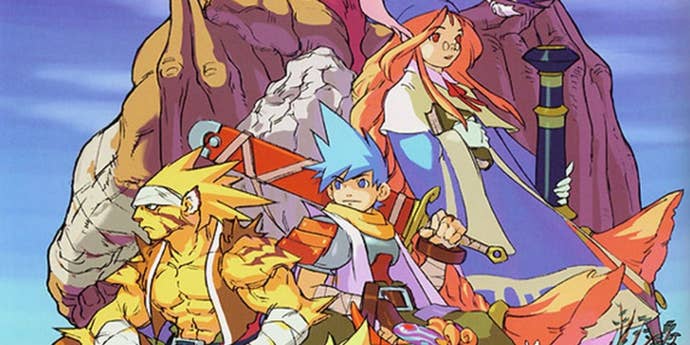
There hasn’t been a core Breath of Fire release in the west since 2002 and the latest Japanese one is a mobile effort – lord love a duck – but we still keep the faith. Capcom’s Dragon Quest rival has a peculiar charm of its own, playing fast and loose with its own canon to weave a constantly reinvented set of narratives around Ryu and Nina.
The whole series is worth a look but Breath of Fire 3, the first PSOne release, is among the best, story-wise. Cross your fingers someone at Capcom loses their head and greenlights a proper sequel, or even for the long lost Deep Down to drop the codename and join the family (unlikely).
34. EverQuest
Not the first MMORPG on the market, or even the most financially successful, but no other online RPG ever caused such as craze as Sony Online Entertainment’s EverQuest. Still going strong 15 years and 20 expansions later, Everquest became synonymous with online addiction, earning itself the well-deserved nickname “EverCrack”. It inspired numerous player meetups, millions of cosplayers, and even led to real-world, offline relationships. Its successor EverQuest 2 accomplished all of this and more when it returned players to Norrath 500 years after The Planes of Power storyline.
If the first entry in the MMO series wasn’t addictive enough, the second release proved it in spades. Fondly known by many early players as “NeverQuest” due to the massive server queues, crashes, and players lining up for respawns, it eventually redeemed itself, giving rise to numerous fanfiction stories and a culture all of its own. A couple of us know people who have left their real-life partners for those met in EverQuest 2. Yeah...
33. Vampire: The Masquerade - Bloodlines
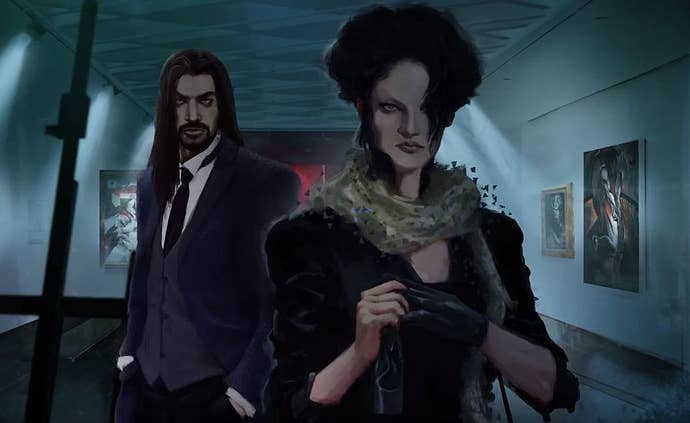
Based on a pen-and-paper roleplaying setting that hits its peak in the late 1990s, Vampire: the Masquerade - Bloodlines was the product of the late, great Troika. Despite our love for this developer there’s no denying it let the game out in an absolute rubbish state, but never mind - the fan community took over and is still improving this beloved classic. There really has never been a better exploration of White Wolf’s gorgeous dark world, and with the demise of CCP’s World of Darkness there probably never will be.
32. Tales of Berseria
Since 1995 the Tales series has been one of the best JRPGs on the market, although we in the west have had to take what little of it Bandai Namco bothered to bring over and jolly well like it. Debuting on the SNES in the golden era of 16-bit JRPGs, Tales of Phantasia was the first of 16 main titles so far (Tales of Berseria is the latest mothership release), plus multiple spin-off games, audio stories, manga and anime. While most feature different protagonists, all are linked by a tried and true high fantasy setting, a thread of gameplay mechanics, a superior battle system and drop dead gorgeous art style.
Created by Yoshiharu Gotanda, what was once a niche series outside of Japan grew in popularity thanks to the vocal praise of importers and efforts of fan translators, who finally raised enough ruckus that Bandai Namco has really stepped up its game in recent years in terms of getting Tales into western hands.
31. Skies of Arcadia
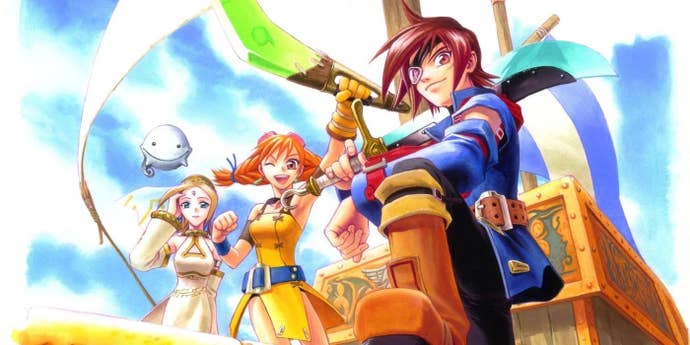
The ill-fated Dreamcast gave us some truly brilliant games, and Skies of Arcadia was one of the very best. Created in-house at Sega by a team whose credits read like a greatest hits of the everything the company ever produced - including Phantasy Star, Sonic, and Panzer Dragoon - Skies of Arcadai flopped commercially to begin with, but got a new lease of life on Gamecube once Dreamcast had finally bitten the dust.
The plot might sound like pretty standard fare for JRPGs, following air pirates Vyse and Aika as they try to overthrow an evil empire with a plot to take over the world, but it’s executed with such charm in a world with so much opportunity for adventure that there’s never a dull moment.
In terms of gameplay, there’s solid turn-based battling in spades. And you get to control flying galleons in both aerial combat and 3D exploration. Anchors aweigh!
30. Monster Hunter World
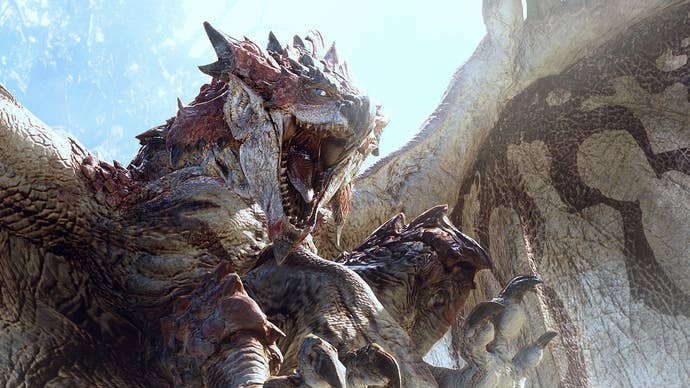
For years the series was always pigeonholed as "big in Japan", but with the release of Monster Hunter World at the start of 2018, it finally shook off the moniker.
Deep and difficult, Monster Hunter World plays out as a series of boss fights where you have to track down and battle against giant creatures as you explore the secrets of the New World. There's tons of loot and gear to craft, meaning that even though you'll play through the same environments and face off against the same creatures time-and-again there's always a new goal to chase.
On top of the wealth of armor customisation options for your hunter, you get to outfit their adorably cute cat friend Palico companion as well - so it's not all bashing dinosaurs over the cranium.
29. Xenoblade Chronicles
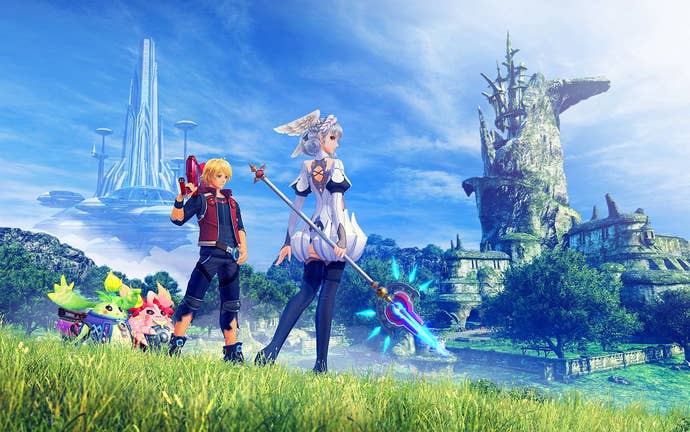
The Xeno series isn’t even a series, technically, but we can trace its right back to 1998 PSOne release Xenogears, with which a crack Square Enix team delivered one of the most thoughtful explorations of the man machine interface to be found in gaming. No sequel was ever produced, but director Tetsuya Takahashi jumped ship for MonolithSoft, which partnered with Bandai Namco for the Xenosaga trilogy on PS2; for legal reasons, it can’t be called a true successor, but it is.
Three further episodes were planned, but axed; luckily, MonolithSoft later signed with Nintendo, and produced Xenoblade Chronicles for Wii and Xenoblade Chronicles X for Wii U. Any and all of these games are more than worth your time, but of the modern two, purists will enjoy the Wii game more, while the Wii U game offers a near-flawless open world to explore. (It’s so impressive that Nintendo even asked MonolithSoft to help with Breath of the Wild.) More recent entry Xenoblade Chronicles 2 for Switch hasn’t lit the same fires, alas.
28. Torchlight 2
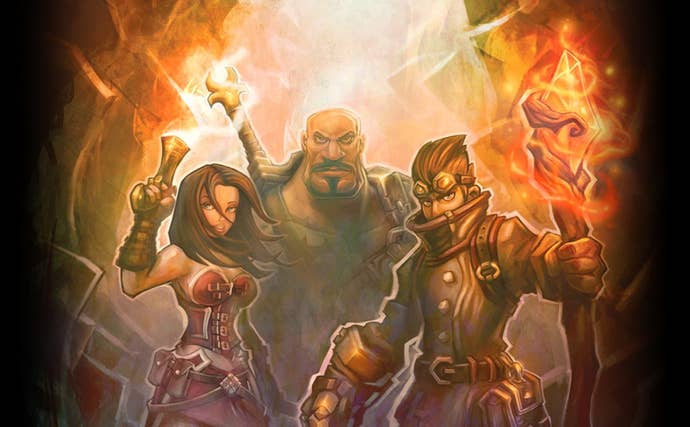
If Diablo 3 didn’t scratch that dungeon crawling itch then it’s time to take a trip to Torchlight. Originally the jumping off point for an MMO, Torchlight proved so popular the MMO was axed and a more co-op friendly sequel produced. Some aficionados argue Torchlight 2 has out Diablo-d Diablo. This is where you go if you want to click on things until they explode, raining loot everywhere, and have your adorable pet run back and sell off all your loot so you don't have to stress about inventory limits. Why don't all games have that? We lost staff for weeks to this one.
27. Jade Empire
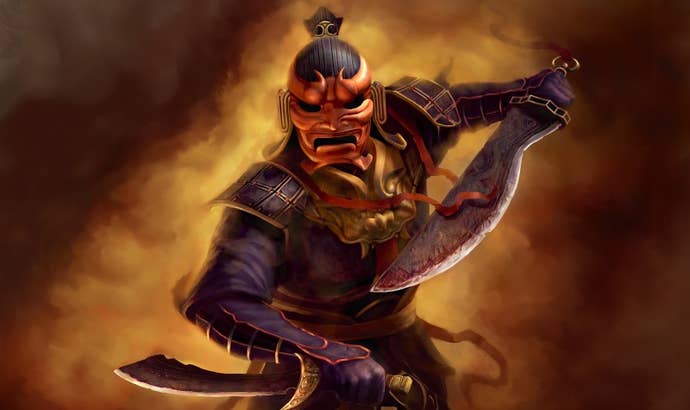
It's not just the classical Wuxia heroes and traditional Chinese style that makes Jade Empire a great RPG - the game has all the skill we'd expect from a classic BioWare game, after all. But there's no denying that the attention to detail, the mythical beasts and the heroes who save the land, are elevated by such attention to detail and story crafting. You've never come across this type of adventure in a Western RPG before, and you're unlikely to ever again. Inspired.
26. Titan Quest
It was a disservice for this dungeon crawler to be lambasted by some as being too similar to Diablo 2, because while it shared some of the same gameplay elements, the various effects, time cycles, and ragdoll physics made it a different game. Featuring gods and monsters pulled from Greek mythology, Titan Quest was varied, colorful and most of all, fun.
Any gameplay issues which kept one from enjoying their adventure were fixed with the release of the Immortal Throne expansion, and due to the inclusion of a game editor players were blessed with a bevy of user-generated content, such as the excellent Lilith mod - which added a new world and 150 hours worth of gameplay.
25. Super Mario RPG: Legend of the Seven Stars
Developed by Square for the SNES way back in 1996, this action role-playing title was a first for the Mario series, in that it deviated from platforming gameplay. As players set about to defeat Smithy and restore pieces of the Star Road, the Shigeru Miyamoto produced game would be one of the last Mario titles released for SNES. Super Mario RPG: Legend of the Seven Stars was lovely with its 3D rendered graphics and lashings of humor, and served as a worthy farewell to a much-loved system.
24. Shadowrun
When we talk about Shadowrun we’re talking about two games; there are quite significant differences between the SNES and Mega Drive releases. In either case, you’re looking at an isometric RPG similar to the original Fallout games, for example, but with a carefully recreated cyberpunk atmosphere.
Nothing ever really equalled it, which is why there was such appetite for a corwdfunded modern successor. Shadowrun Returns and its expansions successfully captures the spirit, but can’t recreate the shock and delight of firing up a cartridge-based console and finding a very adult thriller.
23. Pokemon Ultra Sun & Moon
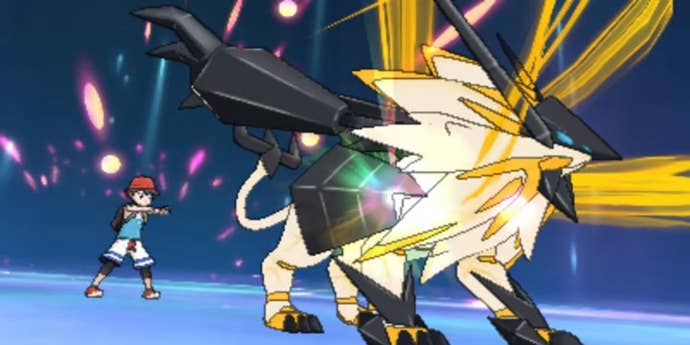
Pokemon could almost be considered its own genre, and nothing has ever appeared to rival it.
How many times have you bowed to the pressure of “Gotta Catch ‘Em All” now? How many of the 802 species of Pokemon (not including Mega Evolutions or Pokemon Sun & Moon‘s new Alolan forms) have you caught? How many iterations of the game have you owned on how many different handhelds? We bet your walls as a kid were peppered with pictures of the various creatures, and your drawers stacked with Nintendo magazines with these critters gracing the covers. We bet you watched the anime, wore Pokemon-themed undercrackers, and pasted your Pokemon puzzles together and framed them.
Pokemon is ingrained into the video game hive-mind as much as fight or flight to animals in acute stress. 4,000 years from now when aliens from a far off galaxy visit the ruins of our civilization, they will undoubtedly run across something Pokemon related, and wonder if these were some sort of strange gods humans worshipped. In truth, some did.
22. Dragon Quest VIII: Journey of the Cursed King
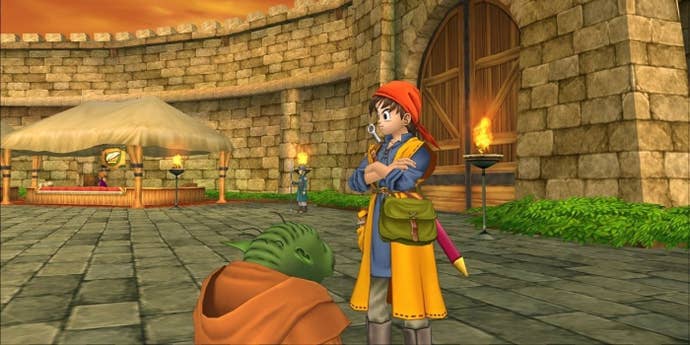
It's impossible to talk about RPGs and not mention Dragon Quest, otherwise known as Dragon Warrior thanks to Enix-as-was’s rubbish localisation efforts. Yet another seminal Square Enix series, this one is distinguished by the artistic stylings of Dragon Ball Z creator Akira Toriyama – not to mention an almost static core creative team led by Yuji Horii.
Unforgivingly old school and satisfyingly cohesive without becoming stale, the available series to date may have hit its peak with Dragon Quest 9 as the next entry turned into a Japan-exclusive MMO. Luckily, Dragon Quest 11 is coming west in 2018.
Dragon Quest 8: Journey of the Cursed King was re-released on 3DS just last year, so it gets to represent the series on this list until the latest - and hopefully greatest - entry arrives.
21. Neverwinter Nights (series)
If you only know BioWare for KOTOR, Mass Effect and Dragon Age, you might not understand why there was so much excitement when that last franchise was announced. With Baldur’s Gate BioWare cemented a reputation for quality fantasy RPGs, but with its second go at the Dungeons & Dragons license it set new standards for characterisation, storytelling and player freedom in Neverwinter Nights.
The Aurora toolset and a prolific fan community meant the adventures never had to end, but even if they had, Obsidian’s excellent follow up Neverwinter Nights 2 was enough to scratch that itch, although opinions is still divided on whether its meta-game focus on packing in everything D&D 3.5 offered came at the cost of story and dialogue. (Probably didn’t help that it released in the same year as Oblivion, hey.)
20. Divinity: Original Sin 2
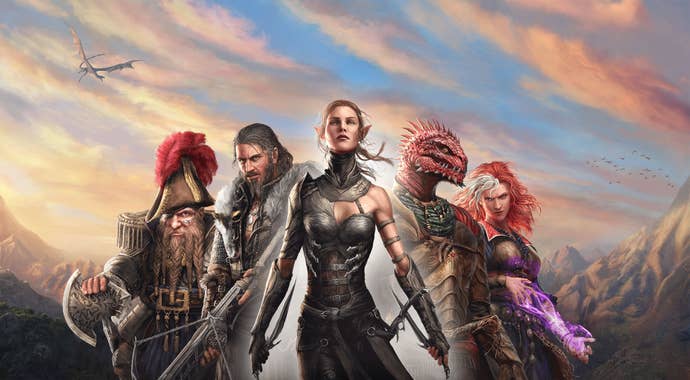
Everybody’s all about crowdfunding CRPGs built with modern engines these days, but few have done it as successfully as Larian Studios. Although the earlier games are a bit hit and miss, the most recent entries, Divinity Original Sin and Divinity Original Sin 2, aren’t just very good RPGs, packed to the gills with humour and impressive systemic reactivity – they’re thoroughly modern efforts, supporting seamless co-op throughout. This frequently overlooked feature makes it a heck of a lot of fun to explore with a good pal, and also makes it feel more like tabletop RPG fun times than any of its rivals.
19. Might and Magic 6: Mandate of Heaven
The best entry in the series since Might and Magic 3: Isles of Terra, Might & Magic 6: Mandate of Heaven gave players free-roam over fully explorable maps, climbable mountains, and the choice between real-time or turn-based combat. It was the first game in the franchise not to offer a race choice other than human, but it still had a nice class and skill-based system in place, the latter of which became rather restrictive with later entries. It was also rather long with well over 100 hours of gameplay, and although that’s a marathon by any standards Mandate of Heaven was still one of if not the most solid entry in the series – despite a further four sequels and two dozen spin-offs.
18. Suikoden 2
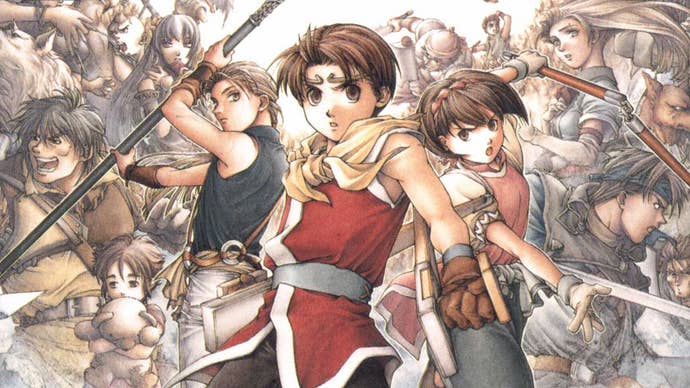
It’s impossible to pick just one of the many excellent Suikoden games, although a quick vote highlighted Suikoden 2 as a firm favourite. With Pokemon-like collecting and levelling in a gorgeous fantasy world inspired by classical Chinese mythology, Suikoden is absolutely jam-packed with great characters, smashing writing, and enough traditional JRPG action to satisfy the most fervent fan. Good thing you can pick up some of these classics on the PSN, as Konami Japan is probably planning to turn Suikoden into a Pachinko exclusive rather than produce the new entry we're all begging for.
17. Deus Ex: Human Revolution Director’s Cut
The original is still considered the best by some, but Deus Ex has always combined the cinematic, often action-oriented gameplay of first-person immersive sims with the statistical tom-foolery of an RPG like no other. Like many of its loosely-connected peers, Deus Ex is famous for its sandbox-like emergent gameplay; make an unexpected action, and the game adapts – often in surprising ways.
This near unparalleled freedom of choice is sort of what role-playing is all about, isn’t? Wrapping it up in a cyberthriller plot certainly helped. Sadly, Square Enix apparently forgot to market followup Mankind Divided, and so everyone else forgot it, too. Has the cyberpunk immersive sim series run its course…?
16. Knights of the Old Republic
.jpg?width=690&quality=70&format=jpg&auto=webp)
It’s nearly impossible to pick between the two Knights of the Old Republic games. BioWare’s original was a breakthrough, inspiring dozens of games to follow by bringing RPGs into the modern era – a trend it continued with Mass Effect. Obsidian’s bug-filled and incomplete sequel manages not to suffer in comparison despite its rushed release, and with its missing content restored by fans, easily rivals its progenitor. Both are still the best Sith simulators out there. What? Oh, come on – nobody plays a Jedi, do they?
No, look, I know; there are a lot of reasons to prefer the original Knights of the Old Republic to its sequel. BioWare made the first one, so it’s more “pure”. Obsidian ran out of time and money and released the game without its ending. It launched with more bugs than a marathon of Starship Troopers. But! Like many of Obsidian’s (frequently broken) sequels, it contains the best writing and best-loved characters in the series. Do yourself a favour and get the fan patch restoring the missing ending, easing an ache you’ve nursed for ten years.
15. Dragon Age: Origins
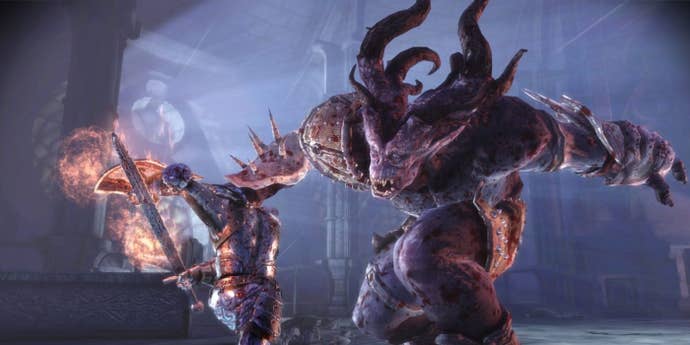
Another top-notch entry in the RPG genre from BioWare, the 2009 spiritual successor to Baldur’s Gate drew on the mechanisms of the past while exploring an all new setting which it’s easy to believe may be the Edmonton team’s bespoke pen-and-paper roleplaying world.
Like Baldur’s Gate before it, combat in Dragon Age: Origins takes place in real time, but allowed players to pause the game to queue up actions after consulting the strategic camera. Not keen on micromanaging? Set each of your party members a stack of interacting behaviours and watch them go at it without you. Between the specializations, moral choices, gift giving and relationships, the game’s party system – derived from that of Star Wars: Knights of the Old Republic – was just icing on the cake. Nine DLC releases plus the Awakening expansion granted hundreds of hours of pure fantasy RPG. Neither sequel has topped it.
14. Earthbound
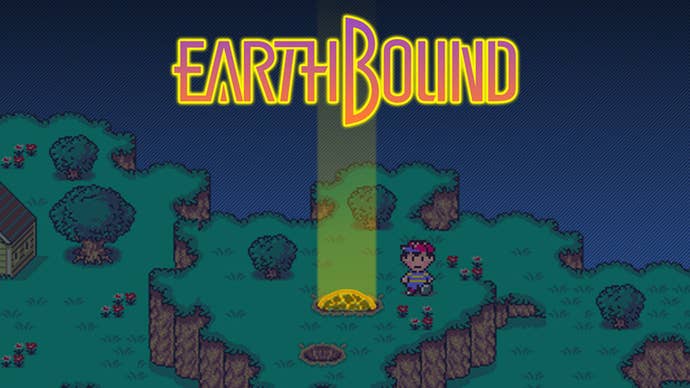
Earthbound (otherwise known by its Japanese title of Mother 2) eschews sci-fi and fantasy for a more prosaic setting: your local neighbourhood. Shigesato Itoi intended the series as a ‘playground ... full of insignificant things’, and you can feel your childhood leaking out of it like heat off the sidewalk on a summer afternoon. I don’t know how to tell you how special it is, and how much it makes of the smallest things. There are sequences in there that changed lives, man.
A cult classic, Earthbound was only released in Japan and North America for SNES, but Nintendo finally made it available for Wii U Virtual Console in 2013. The first Mother game, titled "Earthbound Beginnings" for its western debut, is also now available. We're still waiting on Mother 3's western release, but struggle to hold out hope for a fourth game.
13. Chrono Trigger
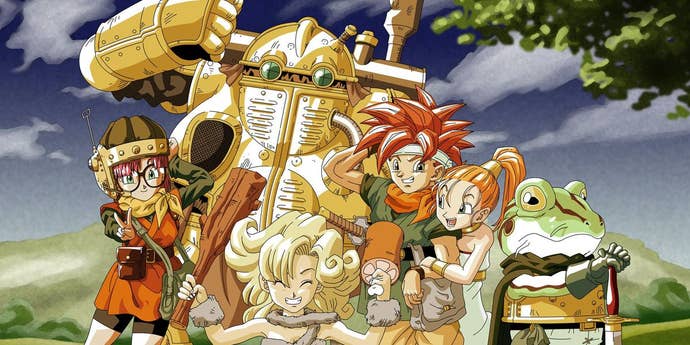
Unlike stablemate Final Fantasy, Chrono Trigger has never gone out of fashion. There was nothing generic about this time-travelling RPG, which broke out of the western-influenced high fantasy style dominant in the genre at the time and loaded your party with such party members as a mechanical genius, a robot, a frog and the ga- well, spoilers. Developed by a JRPG dream team and one of the most satisfyingly complex stories of the 16-bit era, it’s worth revisiting for reasons beyond nostalgia, as there hasn’t been anything quite like it since.
12. Persona 5
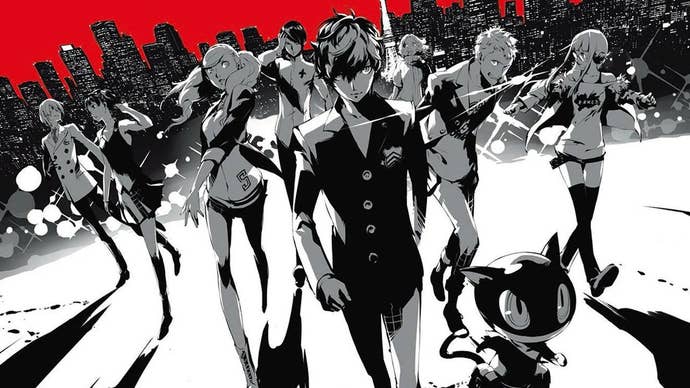
The Persona series is a spin off of the Megami Tensei franchise, but Atlus’s decision to blend a visual novel-style life sim with the famous RPG chops of the core dungeon crawling series paid off big time. The characters and storytelling are equally compelling; you’ll never find a better group of troubled teens to shoot in the head and climb into a TV with. The latest entry, Persona 5, is the pinnacle of everything Atlus aimed for with the series: an incredibly stylish but frequently dark romp with distinctly Japanese sensibilities, and maybe the best JRPG of the past ten years.
11. Planescape: Torment
If you are used to modern RPGs with action combat and handholding, this is going to come as a shock. Planescape: Torment is considered one of the best examples of writing gaming has ever produced, but it’s also D&D in its most rewarding form – challenging, unforgiving and willing to entertain the idea that you do more than follow orders. A remarkable example of the craft, it matches subject matter to gameplay in a way few games have or will ever live up to. Dark, funny and flipping enormous, it remains in the memory long after you finally say goodbye to the Nameless One. Modern thematic successor Torment: Tides of Numenera doesn’t quite live up to it, even assuming you’re on board this trend for resurrecting a genre with conventions many of us find difficult to return to.
10. Final Fantasy 9
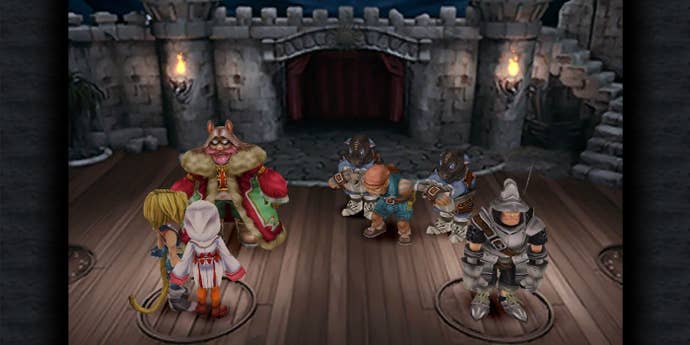
The only properly old school JRPG series to survive in the western-dominated triple-A market, Final Fantasy is the original and still the b- well, our favourite. The series is so star-studded it’s hard to choose between them. FF6 was one of the best RPGs on the SNES. FF7 made JRPGs cool. FF10 molded our adolescent hearts. And if we don’t mention FF5 and FF9 someone will want to lynch us. The FF13 series may come under fire, but FF14 is a shining achievement.
A fair contender for JRPG of the decade before Persona 5 dropped, Final Fantasy 15 belies its ten year development hell to present a gorgeous open world and a road trip journey with a cast of Very Good Boys you won’t even mind taking selfies with. Square Enix is shoring up the confusing third arc, which amazingly speaks of needing just a little more time in the oven, but lessons have been learned and that’s what matters. Look for Final Fantasy 16 sometime after the heat death of the universe.
Final Fantasy 9 tops our separate list of the best Final Fantasy games, so it gets to represent the series here.
9. Bloodborne
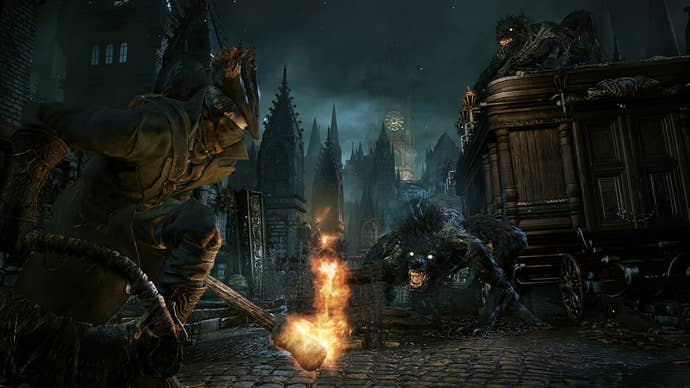
What Demon’s Souls did quietly and virally, Dark Souls did loudly and brashly, thanks to a bold gamble from the smugly triumphant Bandai Namco. A sequel in all but name, the second half in what has been loosely termed “the Soulsborne series” built on the formula with such success that it established a new genre of punishing but rewarding inaccessible action RPGs. Increasingly imitated but never equalled, Bloodborne and every other game in the family is a modern classic relying just as much on what’s between your ears (patience, hopefully) as how quickly you flick your finger over the dodge or shield button. Pro tip: never take it off.
Dark Souls 3 is a fantastic farewell to the franchise; while the challenge is all there, the systems have been tweaked to be slightly more fair for those who don’t go in armed to the teeth with wikis and guides – the nasty surprises happen in levels rather than in irreversible build mistakes.
8. Diablo
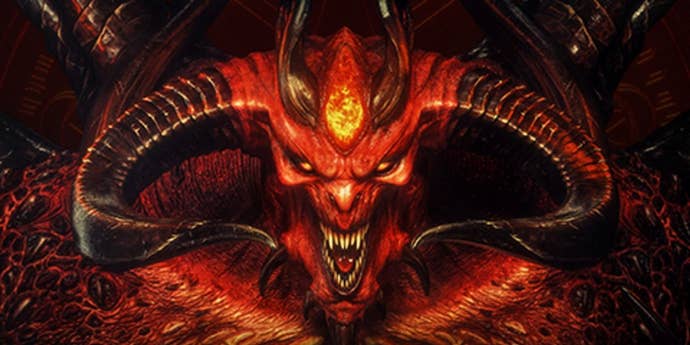
Pinning down exactly what made Diablo such a time sink is difficult. Was it the perfectly drawn-out loot cycle? The scaling difficulty? The pleasure of taking on the lord of hell with a friend? The genuine joy of stringing together a simple series of keystrokes to bring a complex chain of skills, buffs and times into fruition for massive damage? Or maybe all of the above.
Diablo 3 hasn’t triggered the same kind of obsessive delight the first two did, but after much tweaking and revising it’s a truly excellent package; good alone, terrific in co-op, offering endlessly escalating challenges, constantly evolving and really excellent on consoles, even though “they” said controllers could never work. Someone forgot Diablo‘s success on the original PlayStation, innit.
7. Fallout New Vegas
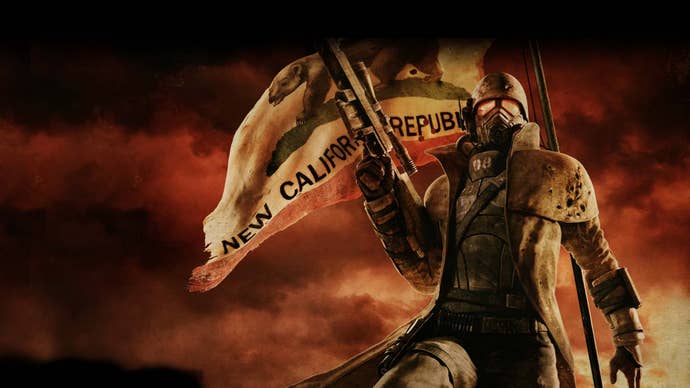
Fallout 3‘s take on warped Americana is more accomplished than anything else out there. It’s a paranoid world of soda pop and radiation, where VATS laser guns and Abe Lincoln’s repeating rifle take down mutants, robots and scavengers all grasping for survival. Will you do the right thing for the people and irrigate the country, or just become a have in a worlds of have-nots? The Obsidian follow-up, Fallout New Vegas, took things a step further, dropping the player in the middle of Sin City itself, destined to roam about the Mojave Desert to seek revenge and recover his stolen package. That’s one damn dedicated courier, and New Vegas offers more nods to earlier Fallout games for purists wanting to get back to the heart of it.
Released in 1997 and 1998 respectively, Fallout and Fallout 2 from Interplay and Black Isle Studios are still considered two of the best RPGs ever to grace a computer screen. Even almost 30 years later, they both hold up well.
Fallout 4, meanwhile, is just a beast: enormous, reactive, constantly surprising and packed with genuinely impactful choice moments. The Commonwealth offers the opportunity to carve out a little empire of your own, and shag at least half of your companions while you’re at it.
6. World of Warcraft
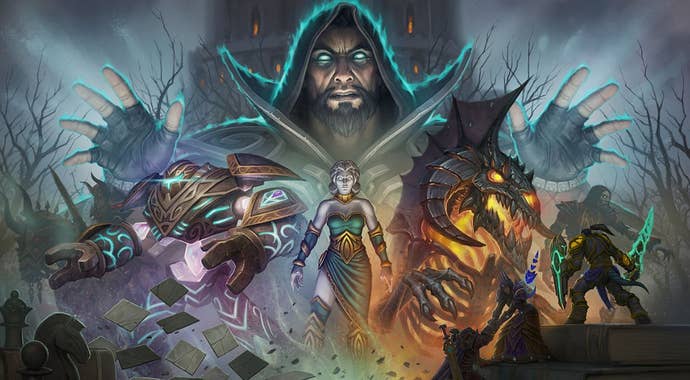
A true juggernaut in the world of MMORPGs, at its height in 2010 World of Warcraft had 12 million subscribers. While those numbers have dropped they're still enormous, and WoW is still going strong ten years later, with 10 billion dollars earned as of 2012 to make it the highest-grossing video game of all time. There is really nothing else to compare to WoW, with over 100 million accounts created over the course of the years, and a growing transmedia empire of comic books, a feature film, more merchandise than you can poke a stick at and countless mainstream jokes and references. Not to mention ruined marriages and lives, and more cases of carpal tunnel than masturbation. It continues to be a force to be reckoned with and a game in which many MMOs aspired to emulate, only to fail. It just cannot be done.
5. Baldur's Gate
While not the first Dungeon & Dragons video game released on the market, it is still one of the best. Based on Ed Greenwood’s Forgotten Realms setting, it set a standard for the genre, discouraging rivals’ pretensions even as the pen-and-paper source came to dominate the tabletop scene.
With mechanics adhering – for the most part – to Advanced D&D 2nd Edition, the top-down isometric perspective and real-time combat system of Baldur’s Gate provided the player with a realistic simulation of the “real” D&D, but without having to do your own maths or look up the ever-expanding rules. Like its kitchen table predecessor, it was great fun to start out as a weakling before becoming a complete badass, leading his or her party of six to glory through the main campaign and over one hundred side quests. It was definitely a life sucker, and cemented a reputation BioWare continued with Neverwinter Nights – probably eventually paving the way for LucasArts to greenlight KOTOR.
4. Mass Effect 2
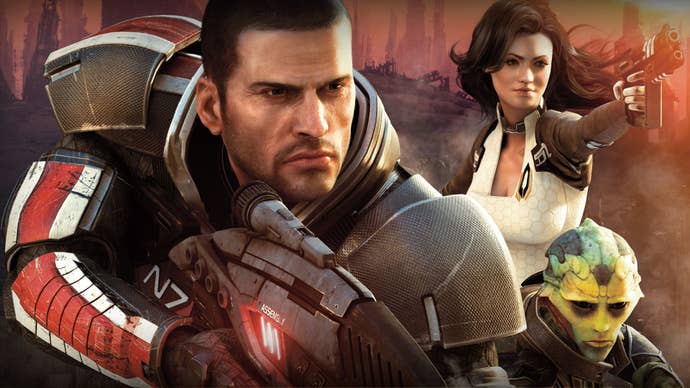
People persist in thinking of RPGs as nonsense fantasy romps packed with improbable chainmail bikinis, eye-rolling magical plots and dull, stats-driven combat.. Or they did, perhaps, until Mass Effect arrived. Oh sure, it’s a hybrid game, with plenty of shooty shooty bang bang, but there’s no hiding the fact that this is a space opera where you spend as much if not more time chatting to your squaddies and navigating the inventory system (ugh!) as you do shouting PEW PEW PEW. We don’t know why everyone thought the first one was doomed on announce, but five minutes they were all passionately in love with the adventures of Commander Shepard and their troop of alien buddies. This feeling has never gone away, and the incredible backlash to the trilogy’s ending only stands testament to its impact.
Mass Effect 2 is the best in the series, and plays out almost like a heist movie as Shep scours the galaxy to form a crack team of misfit hard nuts to fight off an alien threat. Recent entry Mass Effect Andromeda is a nice place to jump on board, especially now it’s been given a thorough patching, but it doesn’t have the same impact as the originals – new team, new setting, new tone.
3. The Legend of Zelda: Breath of the Wild
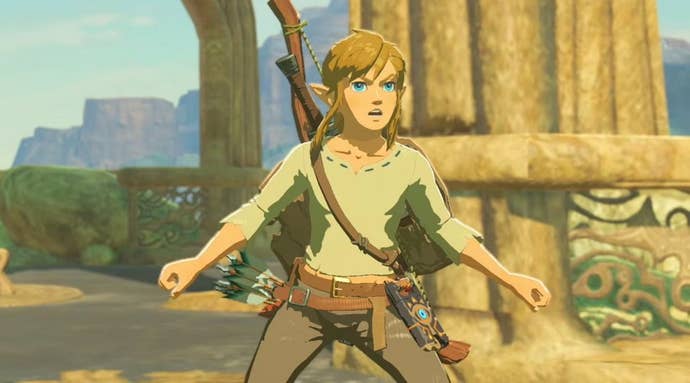
While one could argue that the Nintendo series is technically an action-adventure franchise, just you try and leave The Legend of Zelda off any best-of list in the wake of Switch launch title Breath of the Wild, which knocked everyone’s socks off, gave them a foot massage, and then offered them a cold beer and a wink. Thrillingly open and systemic, dauntingly weighty with its huge overworld and hundreds of challenge shrines, and daringly difficult, it must stand among the best games of the generation.
There’s so much else to treasure in this incredible series, but let’s highlight two staff favourites. The Legend of Zelda 2: The Adventure of Link is perhaps the most perfect of the early series, while The Legend of Zelda: Link’s Awakening deserves a wider audience than its handheld-only release garnered.
2. The Elder Scrolls 5: Skyrim
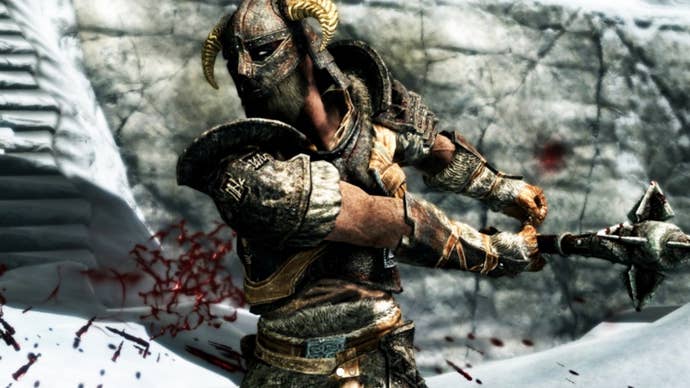
Probably the most mainstream of role-playing games, Skyrim manages to please the newcomer at the same time as allowing the hardcore to go boots deep. Politics, crafting, exploration, brutal combat and – yes! – fighting massive dragons, it’s every school kids’ idea of what adventures and war in a lustful, fantasy world should be.
Skyrim changed everything for the genre, making the phrase “blockbuster RPG” a meaningful goal rather than an in-office joke. Its fingerprints are all over modern RPGs – and even general open-world action games. We’ll be seeings its legacy for years to come – but if you come for the king, you better bring your A-game.
We’d be criminal scum not to mention the previous two entries in the series as well, and you’ll meet plenty of people who’ll swear blind that Skyrim is garbage compared to the groundbreaking achievement of Morrowind and the exceptional quest design of Oblivion.
1. The Witcher (series)
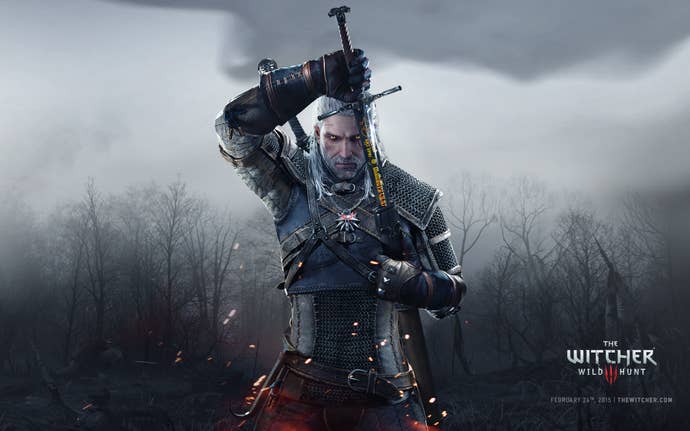
The first Witcher entry gave players the ability to galavant across a medieval world like Captain Kirk, killing monsters and meeting interesting females. It was met with such a warm reception CD Projekt RED decided to go for broke the second time out. A whole new proprietary engine, a console release, two versions of major environments so the game could adapt to your choices - it was a hugely ambitious project for such a young team. It paid off, though, and while fans struggled with changes to the combat system, Geralt’s second set of adventures remained one of the brightest lights in modern RPGs ... until the third one.
The Witcher 3: Wild Hunt set a new bar for modern RPGs, the first game to do so since Skyrim a generation before. As much as it draws on Bethesda's trendsetter, CD Projekt's magic has a quality, in every sense, all of its own; the hundreds of hours of interconnected quests, lashings of eastern European personality and nailbiting combat are just the start of what makes it special. Whatever tops it is really going to be something.
